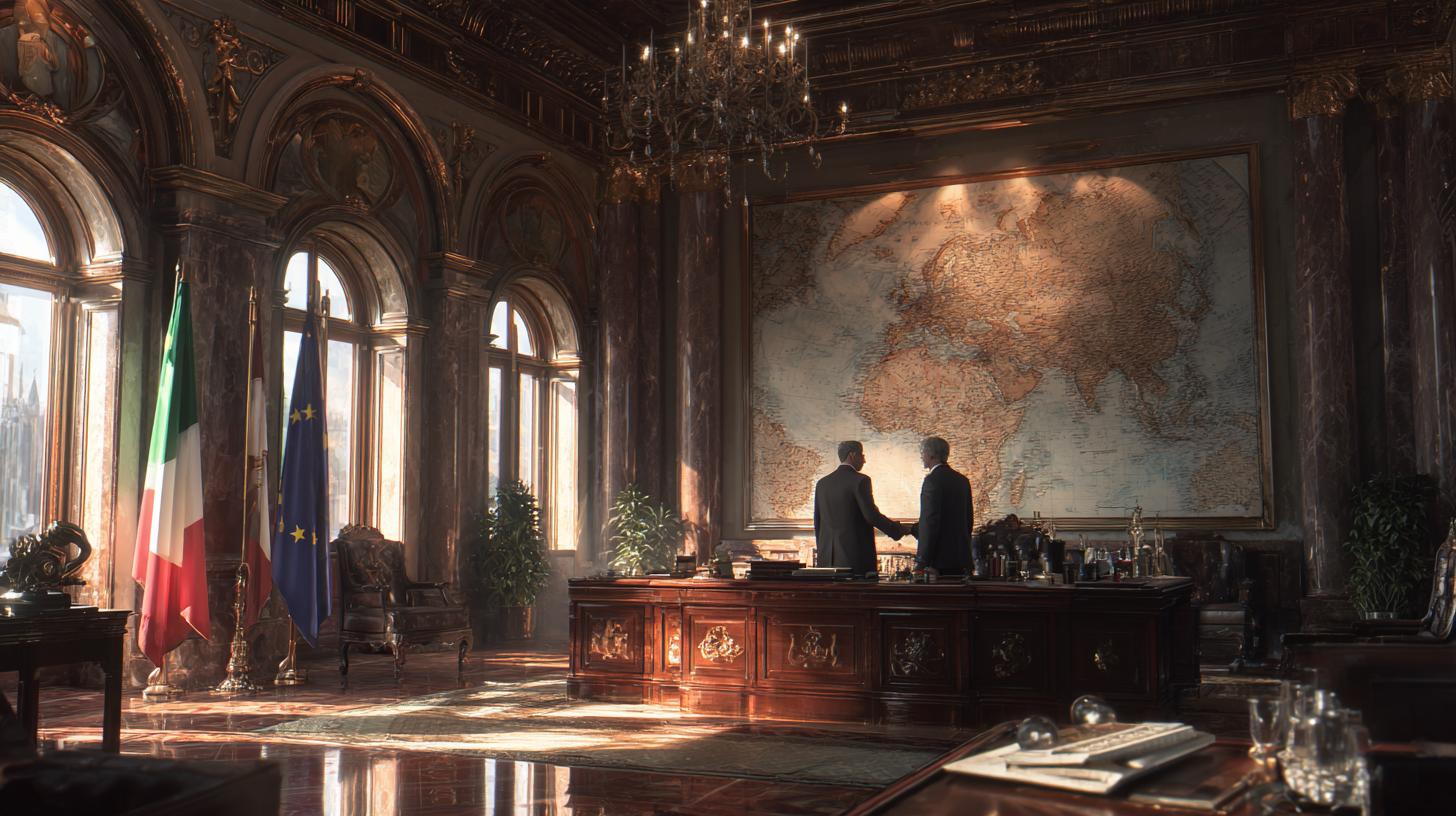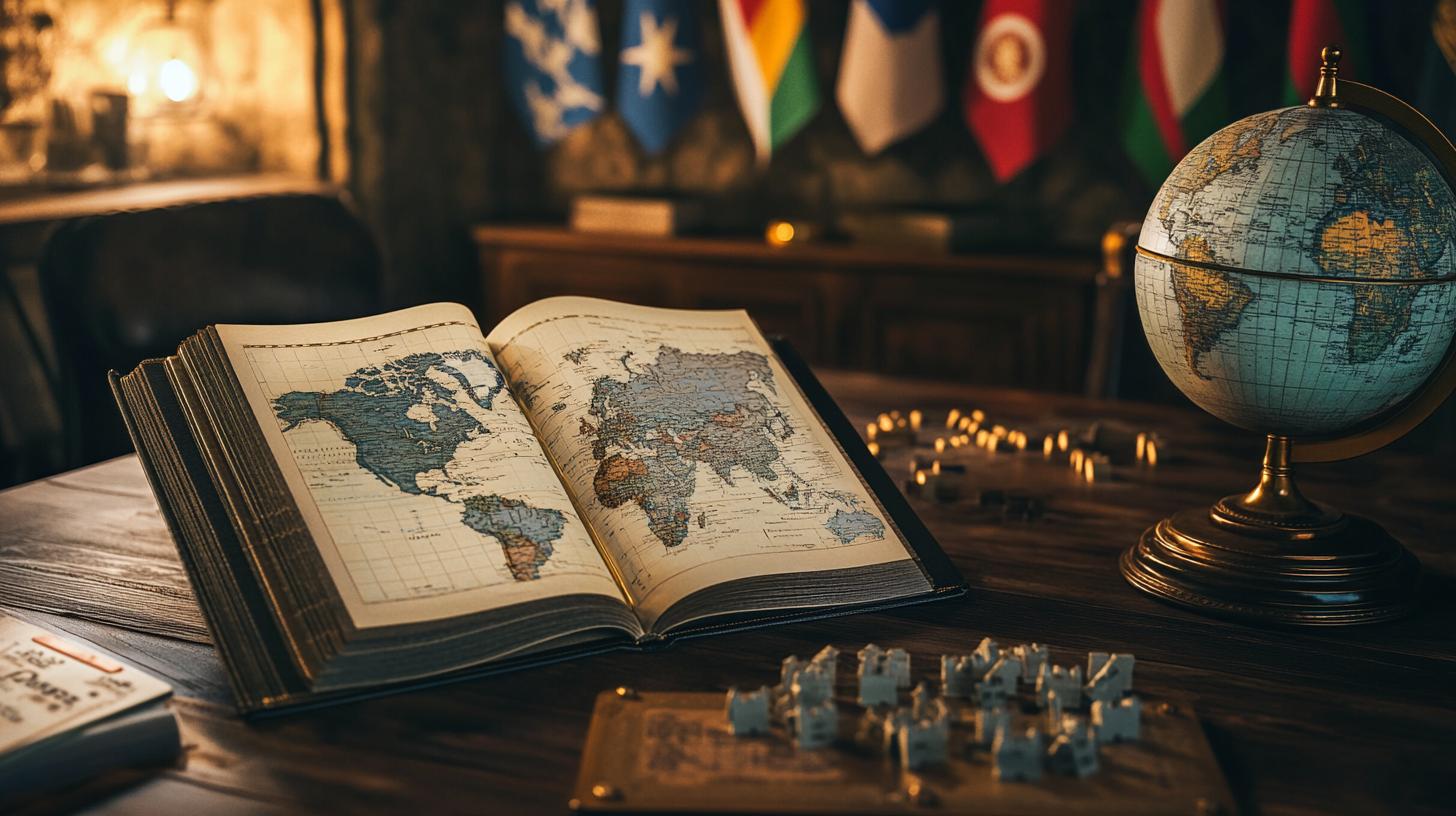The Ultimate Diplomacy Guide for Italy: Mastering Italian Diplomatic Relations
Embarking on international negotiations or cultural exchanges in the Bel Paese requires more than just language skills—it demands an understanding of Italy’s unique diplomacy style. With its rich history, regional diversity, and emphasis on personal rapport, succeeding in Italian diplomatic circles can be both fascinating and challenging. This diplomacy guide for Italy will take you on a journey through centuries of tradition, modern diplomatic practices, and hands-on tips to build lasting relationships. Whether you’re a seasoned envoy or a business leader looking to forge strategic partnerships, you’ll find actionable advice, real-world examples, and insider strategies tailored to Italy’s dynamic political and social landscape. Get ready to unlock the secrets of Italian diplomacy, cultivate trust, and navigate every negotiation like a local.
1. Understanding the Italian Diplomatic Landscape
1.1 Historical Context of Italian Diplomacy
Italy’s diplomatic roots stretch back to the Renaissance city-states of Venice, Florence, and Genoa, where envoys and merchants first mastered subtle negotiation tactics. This era fostered a culture of patronage and personal connection that still influences modern diplomatic protocols. Over centuries, Italy’s unification in 1861 and its post-World War II role within the European Union have shaped a unique blend of traditional etiquette and cosmopolitan openness. Recognizing this layered history allows diplomats to appreciate the nuanced interplay between regional pride and national identity.
1.2 Core Cultural Norms and Values
In Italy, respect, formal greetings, and face-to-face meetings carry significant weight. Hierarchy may be fluid in casual settings, but formal titles and professional decorum remain essential in diplomatic circles. Italians value eloquence, sincerity, and a touch of warmth—expect invitations to share coffee or an aperitivo before business discussions begin in earnest. Understanding the cultural emphasis on family, art, and regional heritage will help you connect authentically with Italian counterparts.
2. Essential Tips for Successful Diplomacy in Italy
2.1 Building Rapport through Relationship-Driven Strategies
Establishing personal rapport is the cornerstone of effective Italian diplomacy. Start by investing time in small talk about local culture, cuisine, or sports—topics like Serie A football can break the ice. Attend cultural events or museum openings to demonstrate genuine interest in Italian heritage. Over time, these shared experiences foster trust and make formal negotiations smoother.
2.2 Mastering Communication Styles
Italians are expressive communicators who appreciate clarity laced with tact. Use measured hand gestures to underscore key points, and maintain good eye contact to convey sincerity. Avoid overly blunt language—frame proposals with polite qualifiers such as “potrebbe” (could) or “se fosse possibile” (if possible). Listening attentively and asking open-ended questions shows respect for your interlocutor’s expertise.
2.3 Effective Negotiation Techniques
Negotiations in Italy often proceed at a deliberate pace. Begin with broad discussions before drilling down to specifics, and be prepared for several rounds of conversation. Showcase flexibility—Italians admire partners who can adapt to evolving situations without losing sight of shared goals. Pro tip: use visual aids like charts or slides to reinforce data-driven arguments, while balancing them with storytelling about long-term benefits.
3. Real-World Case Studies and Examples
3.1 Strengthening EU Partnerships: A Case Study
In 2019, a European trade envoy successfully renegotiated agricultural quotas with Italy by organizing a regional tasting tour and hosting roundtable discussions in Emilia-Romagna. By showcasing mutual benefits—improved exports, job creation, and sustainable farming—the envoy turned a contentious issue into a collaborative victory. This example highlights the power of combining cultural immersion with data-backed proposals.
3.2 Corporate Diplomacy in Milan
A multinational corporation expanding into the Lombardy region secured its licenses faster by partnering with local chambers of commerce and sponsoring a design exhibition. Through these initiatives, executives built goodwill and demonstrated respect for Italian entrepreneurial spirit. This approach underscores how corporate diplomacy and cultural sponsorship can go hand-in-hand.
4. Overcoming Common Challenges
4.1 Language Barriers and Translation Nuances
While many Italian officials speak English, idiomatic expressions and regional dialects can create misunderstandings. Hiring a professional interpreter with diplomatic experience ensures accuracy and preserves tone. Additionally, learn key Italian phrases for greetings, gratitude, and formal introductions—it goes a long way in demonstrating respect.
4.2 Navigating Bureaucracy and Protocol
Italy’s administrative processes can be intricate, with multiple stakeholders and regional offices involved. Familiarize yourself with local protocols, filing requirements, and permit timelines. Establishing relationships with regional officials and tapping into trusted local fixers can streamline paperwork and accelerate project approvals.
5. SEO Optimization and Meta Description Suggestions
To boost your article’s search rankings, incorporate the target keyword “diplomacy guide for Italy” naturally in headings, subheadings, and throughout the body text. Use related terms like “Italian diplomatic relations,” “cross-cultural communication in Italy,” and “Italy diplomacy tips.” Keep paragraphs concise and include internal links to relevant site content, such as your Italy Travel Tips page and a broader European Diplomacy Overview.
Meta description suggestion:
“Discover our comprehensive diplomacy guide for Italy, featuring cultural insights, negotiation strategies, real-world case studies, and practical tips to master Italian diplomatic relations.”
Unlock Italian Diplomatic Success Today
Armed with this Italy diplomacy guide, you’re ready to navigate formal protocols, build genuine connections, and achieve your diplomatic objectives. Embrace the art of Italian conversation, respect regional traditions, and leverage proven negotiation techniques. Will you be the next envoy to transform a challenging dispute into a lasting partnership? Start your journey now—subscribe for weekly insights, download our free Italy diplomacy checklist, and join a community of international professionals shaping tomorrow’s global dialogue.


